- International Business College in Fort Wayne, Indiana can help you take the first step in continuing your education. With career-focused classes in exciting fields like Technology, Business and Health Care, you'll be able to finish your education and start working in a short amount of time!
School Highlights
International Business College-Fort Wayne serves 124 students (100% of students are full-time).
The college's student:teacher ratio of 5:1 is lower than the state community college average of 34:1.
Minority enrollment is 16% of the student body (majority Hispanic and Asian), which is less than the state average of 51%.
Quick Stats (2025)
- Enrollment: 124 students
- Private-state tuition: $13,880
- Acceptance Rate: 74%
- Student:teacher ratio: 5:1
- Minority enrollment: 16%
- Source: Integrated Postsecondary Education Data System (IPEDS)
Top Rankings
International Business College-Fort Wayne ranks among the top 20% of public schools in Indiana for:
Category
Attribute
School Resources
Completion Rates
School Overview
The teacher population of 27 teachers has stayed relatively flat over five years.
International Business College-Fort Wayne
(IN) Community College Avg.
Carnegie Classification
Baccalaureate/Associate's Colleges: Mixed Baccalaureate/Associate's
Baccalaureate Colleges: Diverse Fields
Institution Level
At least 2 but less than 4 years
Four or more years
Institution Control
Private for-profit
Private, for profit
Total Faculty
27 staff
119 staff
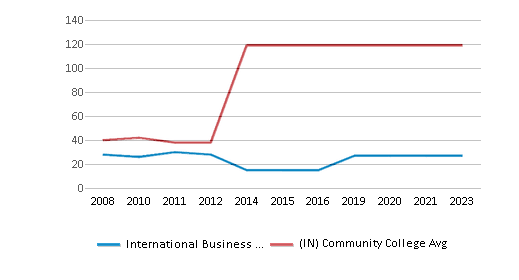
Student Body
The student population of International Business College-Fort Wayne has stayed relatively flat over five years.
The student:teacher ratio of 5:1 has stayed the same over five years.
The International Business College-Fort Wayne diversity score of 0.29 is less than the state average of 0.65. The school's diversity has stayed relatively flat over five years.
Total Enrollment
124 students
1,548 students
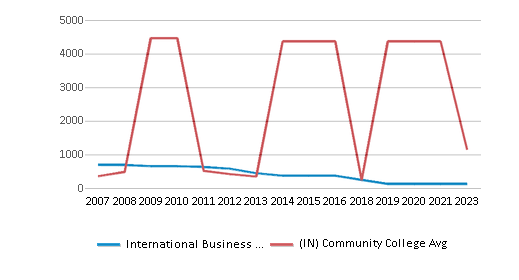
Student : Teacher Ratio
5:1
34:1
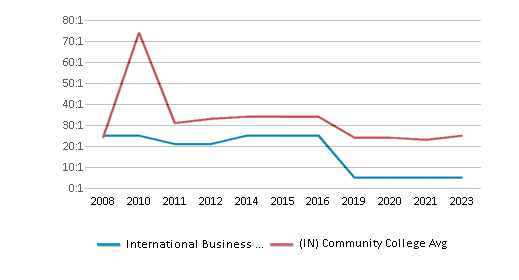
# Full-Time Students
124 students
502 students
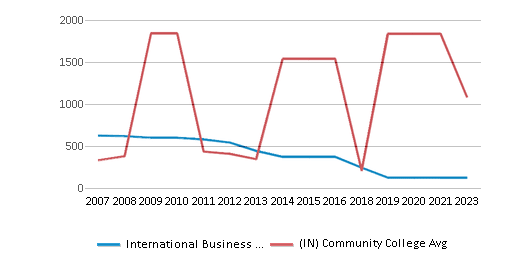
# Part-Time Students
n/a
2,765 students
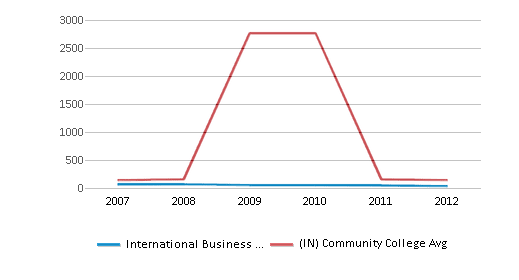
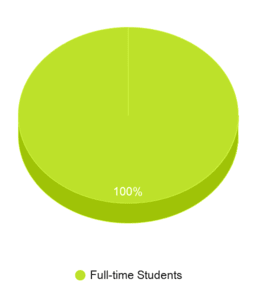
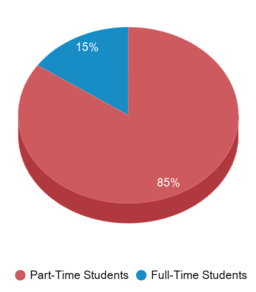
# Enrollment Undergraduate
401 students
289 students
# Full-Time Undergraduate Students
124 students
502 students
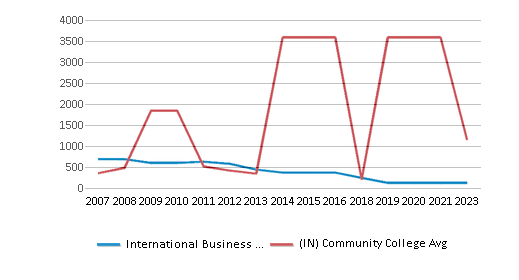
# Full-Time Graduate Students
n/a
5,260 students
# Part-Time Undergraduate Students
n/a
180 students
# Part-Time Graduate Students
n/a
35 students
Total Dormitory Capacity
64 students
83 students
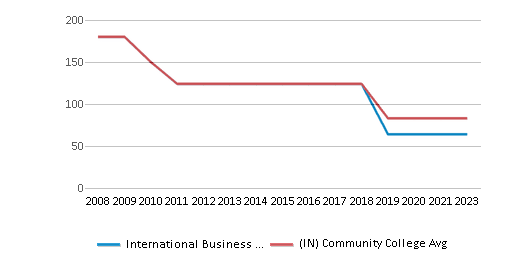
% American Indian/Alaskan
1%
1%
% Asian
2%
2%
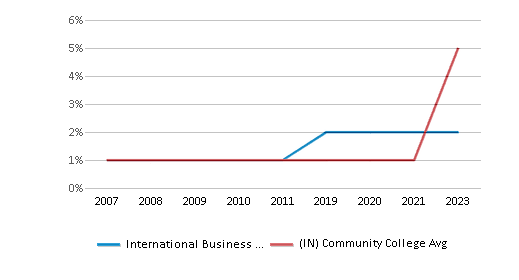
% Hispanic
2%
4%
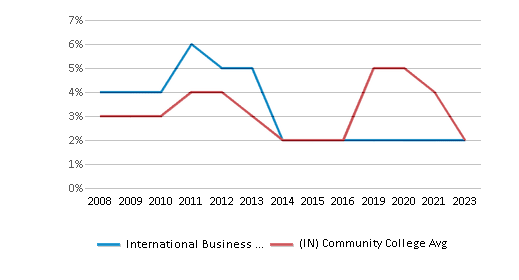
% Black
1%
9%
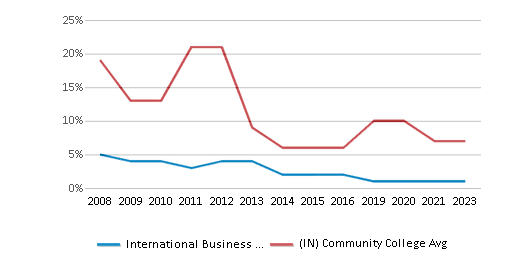
% White
84%
49%
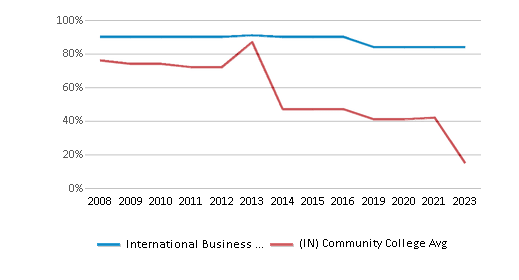
% Two or more races
3%
3%
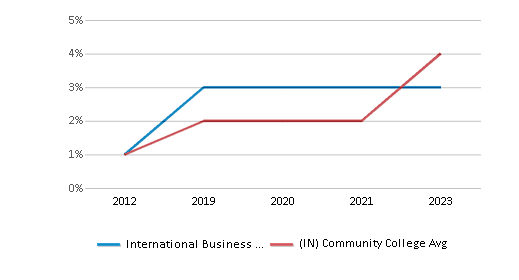
% Non Resident races
3%
n/a
% Unknown races
4%
32%
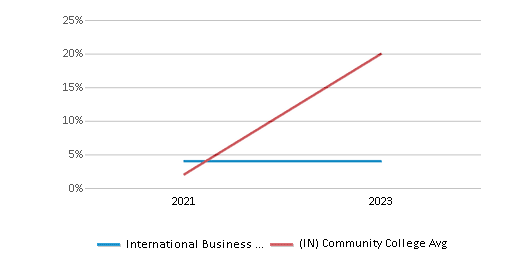
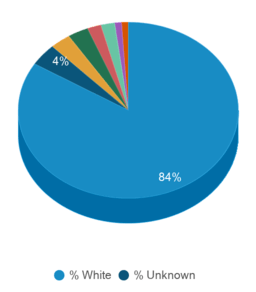
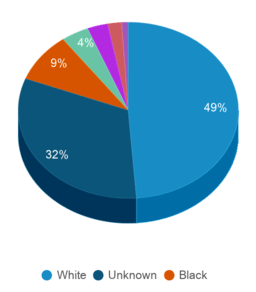
Diversity Score
0.29
0.65
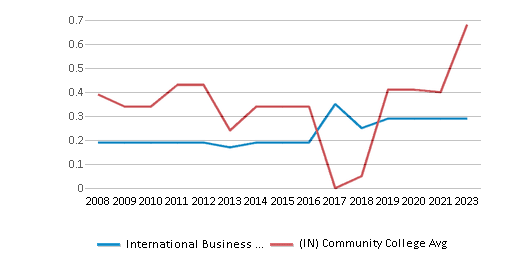
College Completion Rate (Students who graduate in less than 4 years)
1%
0.5824%
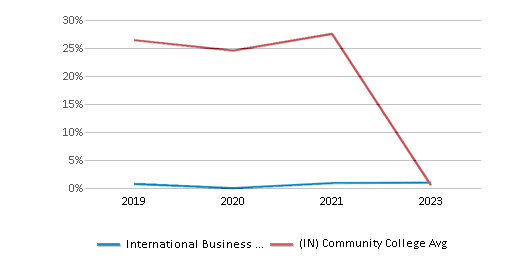
College Completion Rate (Students who graduate in 4 years or more than 4 years)
n/a
0.3346%
Average Graduate Earnings (10 Years)
$27,900
$32,100
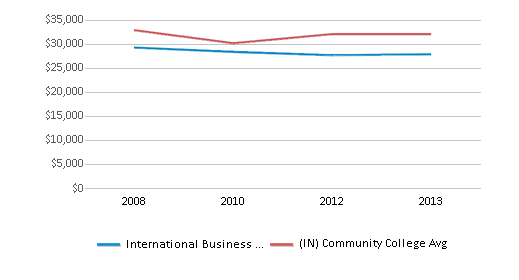
Tuition and Acceptance Rate
The private state tuition of $13,880 is less than the state average of $16,044. The private state tuition has stayed relatively flat over four years.
Private State Tuition Fees
$13,880
$16,044
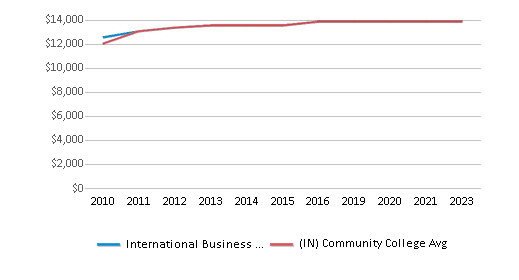
% Students Receiving Some Financial Aid
95%
84%
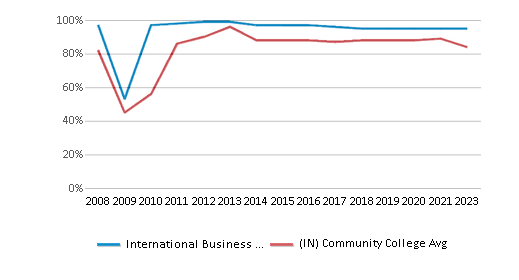
Median Debt for Graduates
$12,000
$12,000
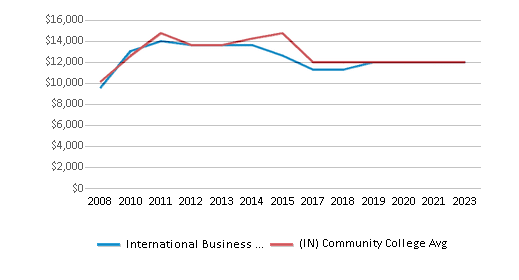
Median Debt for Dropouts
$3,536
$5,500
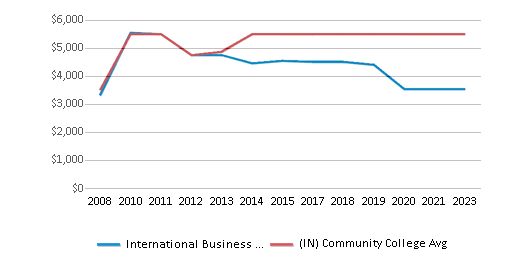
Acceptance Rate
74%
74%
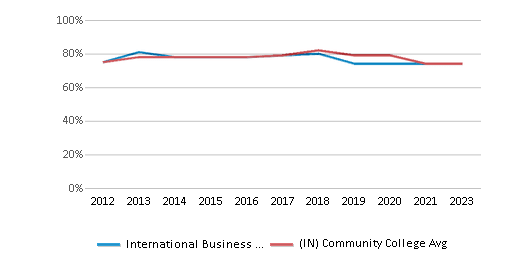
SAT Reading
n/a
485
SAT Math
n/a
485
SAT Writing
n/a
465
ACT Composite
n/a
22
ACT English
n/a
21
ACT Math
n/a
21
Source: 2023 (or latest year available) Integrated Postsecondary Education Data System (IPEDS)
School Notes
- Founded in 1889, International Business College continues the legacy of developing students into professionals. Armed with the real world skills they need to get the job done, our graduates are working in both large and small companies in the tri-state area. It is the unique blend of career-focused classes, high academic standards, and individual attention that differentiate International Business College. Along with academic credentials, our faculty brings industry knowledge to the classroom, helping ground theory with real world reality. International Business College's residence facilities offer many amenities and are located within close proximity to the school and a variety of entertainment and recreational activities. International Business College is accredited by the Accrediting Council for Independent Colleges and Schools. International Business College awards diplomas, associate's degrees, and bachelor's degrees. The medical assisting program is accredited by the Commission on Accreditation of Allied Health Education Programs (CAAHEP) upon the recommendation of the Curriculum Review Board of the American Association of Medical Assistants Endowment.
Frequently Asked Questions
How much does International Business College-Fort Wayne cost?
International Business College-Fort Wayne's private state tuition is approximately $13,880.
What is the acceptance rate of International Business College-Fort Wayne?
The acceptance rate of International Business College-Fort Wayne is 74%, which is equal to the state average of 74%.
What is International Business College-Fort Wayne's ranking?
International Business College-Fort Wayne ranks among the top 20% of community college in Indiana for: Percent of students receiving financial aid and Highest completion rates.
Recent Articles

Obtaining Your Bachelor's Degree at a Community College
Explore the evolving landscape of community colleges offering bachelor's degrees, addressing affordability, accessibility, and workforce needs.

A to Z of Community College Certificates and Courses
From business and healthcare to technology and skilled trades, the article showcases the breadth of options available to students seeking to enhance their knowledge, develop new skills, or pursue career advancement.

What is a Community College?
This comprehensive guide explains what a community college is, its history, and its role in higher education. It covers the types of programs offered, differences from four-year colleges, benefits of attending, and important considerations for prospective students, providing valuable insights for those exploring educational options.











